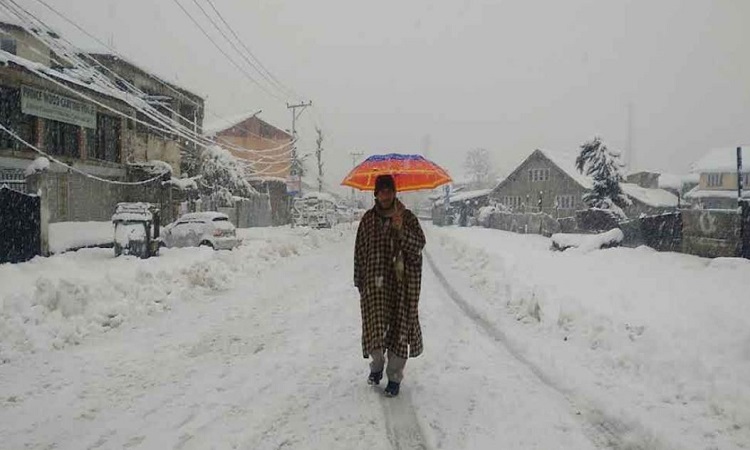Himachal Pradesh: Met department predicts snowfall in higher reaches of hill state on Nov 26, 27
The Weather Department in Himachal Pradesh has forecast light to moderate rain and snowfall in the higher reaches of the hill state for two days, November 26 and 27. Read further on Dynamite News:

Shimla: The Weather Department in Himachal Pradesh has forecast light to moderate rain and snowfall in the higher reaches of the hill state for two days, November 26 and 27.
IMD Head Himachal Pradesh Surender Paul said, "From tomorrow onwards, November 26, there will be a change in weather as the western disturbance is expected in the region. The western disturbance is of light to moderate intensity so there is no possibility of heavy snowfall."
"Therefore, from November 26-27, the higher reaches of Chamba, Kinnaur, Lahaul-Spiti, Kullu, Kangra and Shimla districts will receive snowfall and the lower areas of Sirmaur, Solan, Mandi, and Kangra will receive light rainfall. From November 28-29, the snowfall will be reduced and the weather will clear," IMD head added.
Also Read |
Snowfall Disrupts Normal Life In Several Parts Of Himachal Pradesh
Another western disturbance is likely to arrive on December 3-4, but the immediate concern would be the changes in the weather from November 26-27, he added.
The maximum temperatures are above normal and the minimum temperatures are normal right now. The minimum temperatures have been normal in the region and are expected to drop after two to three days.
"The maximum temperature in the region is normal. Shimla recorded 9.5 degrees Celsius, Kalpa in Kinnaur recorded 2.0 degrees Celsius, Manali recorded 3.2 degrees Celsius, Kufri recorded 7.1 degrees Celsius and Narkanda in Shimla recorded 5.1 degrees Celsius," said Pau further.
Also Read |
Hailstorm, lightning strikes Shimla, 121 roads closed in Himachal
A western disturbance is a non-monsoonal precipitation pattern that originates in the Mediterranean Sea or Caspian Sea.
These extratropical storms bring sudden winter rain to the northwestern parts of the Indian subcontinent. They can also cause snow and fog. (ANI)
 Dynamite News
Dynamite News 